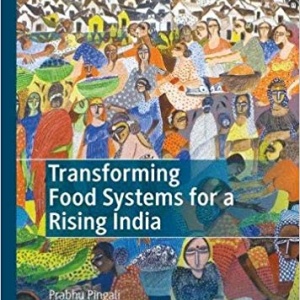
This open access book by Prabhu Pingali, Anaka Aiyar, Mathew Abraham and Andaleeb Rahman uses a food systems lens to explore issues of food security in India and to set policy goals for 2030 and 2050.
Publisher’s summary
This open access book examines the interactions between India’s economic development, agricultural production, and nutrition through the lens of a “Food Systems Approach (FSA).” The Indian growth story is a paradoxical one. Despite economic progress over the past two decades, regional inequality, food insecurity and malnutrition problems persist. Simultaneously, recent trends in obesity along with micro-nutrient deficiency portend to a future public health crisis. This book explores various challenges and opportunities to achieve a nutrition-secure future through diversified production systems, improved health and hygiene environment and greater individual capability to access a balanced diet contributing to an increase in overall productivity. The authors bring together the latest data and scientific evidence from the country to map out the current state of food systems and nutrition outcomes. They place India within the context of other developing country experiences and highlight India’s status as an outlier in terms of the persistence of high levels of stunting while following global trends in obesity. This book discusses the policy and institutional interventions needed for promoting a nutrition-sensitive food system and the multi-sectoral strategies needed for simultaneously addressing the triple burden of malnutrition in India.
Reference
Pingali, P., Aiyar, A., Abraham, M. and Rahman, A. (2019). Transforming Food Systems for a Rising India, Palgrave Studies in Agricultural Economics and Food Policy, Palgrave Macmillan, London.
Read more here. See also the Foodsource building block What is food security?












Post a new comment »